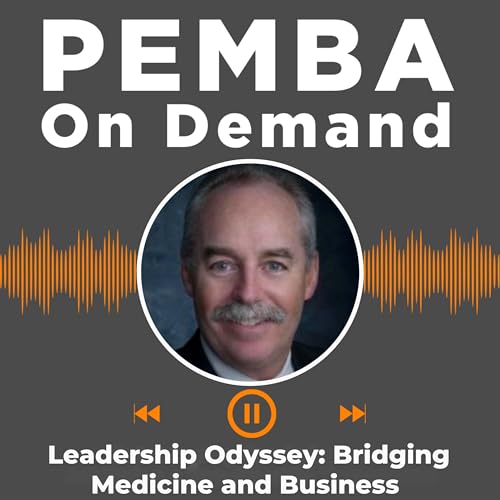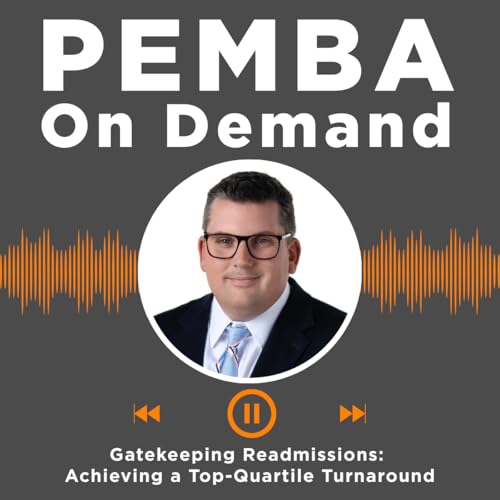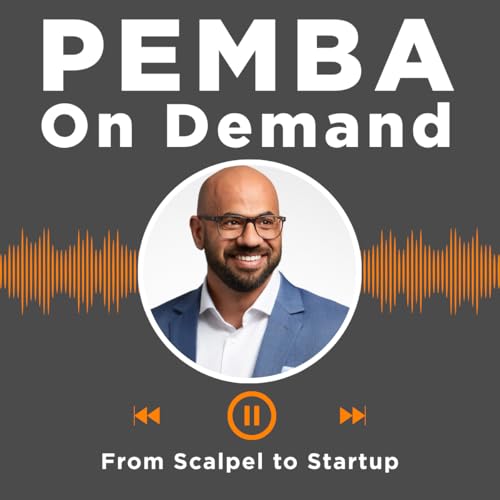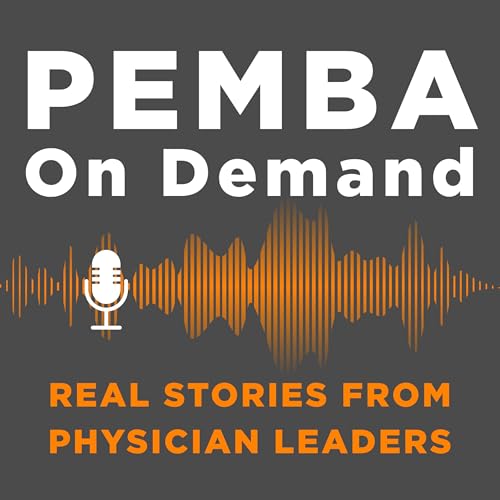What does it take for a physician to redefine success and build a career that truly aligns with purpose, passion, and leadership?
In this episode of “PEMBA On Demand,” host Dr. Norman A. Chapin sits down with Dr. Pamela Sullivan, founder of National Healthcare Solutions, PLLC and former Chief Clinical Officer at Landmark Health. Dr. Sullivan—an accomplished physician leader, author, and consultant—shares her remarkable journey from physical therapy to emergency medicine, executive leadership, and entrepreneurship. She discusses the inspiration behind her new book, Career Prescription Guide: A Physician’s Guide for Career Transformation or Advancement, and the deeper motivations physicians should explore before making major career moves.
Together, they unpack key themes from her book, including identifying your “why,” recognizing the arrival fallacy, navigating cultural fit, and building a fulfilling leadership path aligned with your values. Dr. Sullivan also reflects on her PEMBA experience, lessons from consulting, and how her MBA boosted her confidence, perspective, and leadership impact.
Key Topics Covered:
- The inspiration and process behind writing Career Prescription Guide
- How imposter syndrome and personal stories shaped the book’s message
- Recognizing the arrival fallacy—why new roles don’t always equal happiness
- Evaluating career pivots and transitions objectively, not emotionally
- Assessing organizational culture and finding the right professional fit
- The founding of National Healthcare Solutions, PLLC and lessons from consulting
- Balancing entrepreneurship with full-time leadership opportunities
- How the PEMBA experience transformed her confidence, mindset, and peer network
- The importance of mentorship, self-awareness, and resilience in career growth
- Advice for physicians seeking leadership roles or pursuing new credentials (MBA, CPE, FACHE)
Dr. Pamela Sullivan’s Bio:
Dr. Pamela Sullivan, MD, MBA, CPE, FACP, FCUCM, PT is the Founder and Principal Consultant at National Healthcare Solutions, PLLC, and the former Chief Clinical Officer at Landmark Health. A board-certified physician and accomplished healthcare executive, she has led transformative initiatives in value-based care, clinical operations, and physician leadership. Dr. Sullivan is also the author of Career Prescription Guide: A Physician’s Guide for Career Transformation or Advancement, published by the American Association for Physician Leadership (AAPL). Through her work, she empowers physicians to lead with clarity, confidence, and purpose.
Links & Resources
-
Dr. Norman A. Chapin on LinkedIn
-
PEMBA On Demand Podcast on Apple
-
Dr. Pamela Sullivan on LinkedIn
-
American Association for Physician Leadership
-
PEMBA On Demand on YouTube
 49 分
49 分 2025/12/2549 分
2025/12/2549 分 58 分
58 分 2025/11/1350 分
2025/11/1350 分 2025/10/3048 分
2025/10/3048 分 2025/10/1636 分
2025/10/1636 分 39 分
39 分 45 分
45 分
